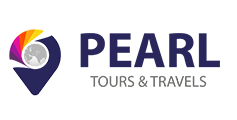Rupee (Rs) is the unit of Pakistani money which is further divided into 100 paisa. The currency has denomination in paper notes (Rs. 5000, Rs.1000, Rs. 500, Rs. 100, Rs. 50, Rs. 20 and Rs. 10) and in coins (Rs. 5, Rs. 2 and Rs. 1). It is a convertible currency but with a slight difference between bank rate and open market rate. However, looking back into history of exchange rate, the Pakistani currency is steadily devaluing over the past couple of decades. An updated exchange rate can be checked with a reliable website though one can observe slight variations even in open market. There are number of ways you can manage your currency while travelling in Pakistan.
- You can carry cash but not all the stock in one basket. Just for safe side, have a credit card on you as well as some traveler’s cheques. Don’t depend as much on travelers cheques as you do on currency bills. And don’t also forget to note down the serial number of travelers cheques.
- ATMs (automatic teller machines) are widely installed in all major cities of Pakistan. Major Banks accept MasterCard and Visa but not always all cards that work in western banks. Rely less on ATMs than on cash. In smaller towns you must have hard cash preferably in local currency because exchange rate in the remote areas is comparatively lower than in major hubs.
- If you come across financial problems, Western Union in Pakistan has services of fast money transfers and you can avail. Western Union operates in all major cities as well as in Post Offices.
- Leading hotels, airlines and stores in Pakistan accept credit cards which is a best alternative for hard cash.
- Other major foreign currencies can also be exchanged in Pakistan but only in major cities. In the remote areas you must not rely most and you should have preferably some local currency on. Always ask for receipt for your transactions, just for the safe side.
